On October 8, 2025, YCAPS and Kreab Tokyo launched a new partnership by co-hosting the inaugural seminar of a new joint series. The well-attended session focused on, "The Future of Regional Security Partnership Architecture." The event brought together leading experts and practitioners to discuss the rapidly evolving network of alliances and partnerships shaping the Indo-Pacific region.
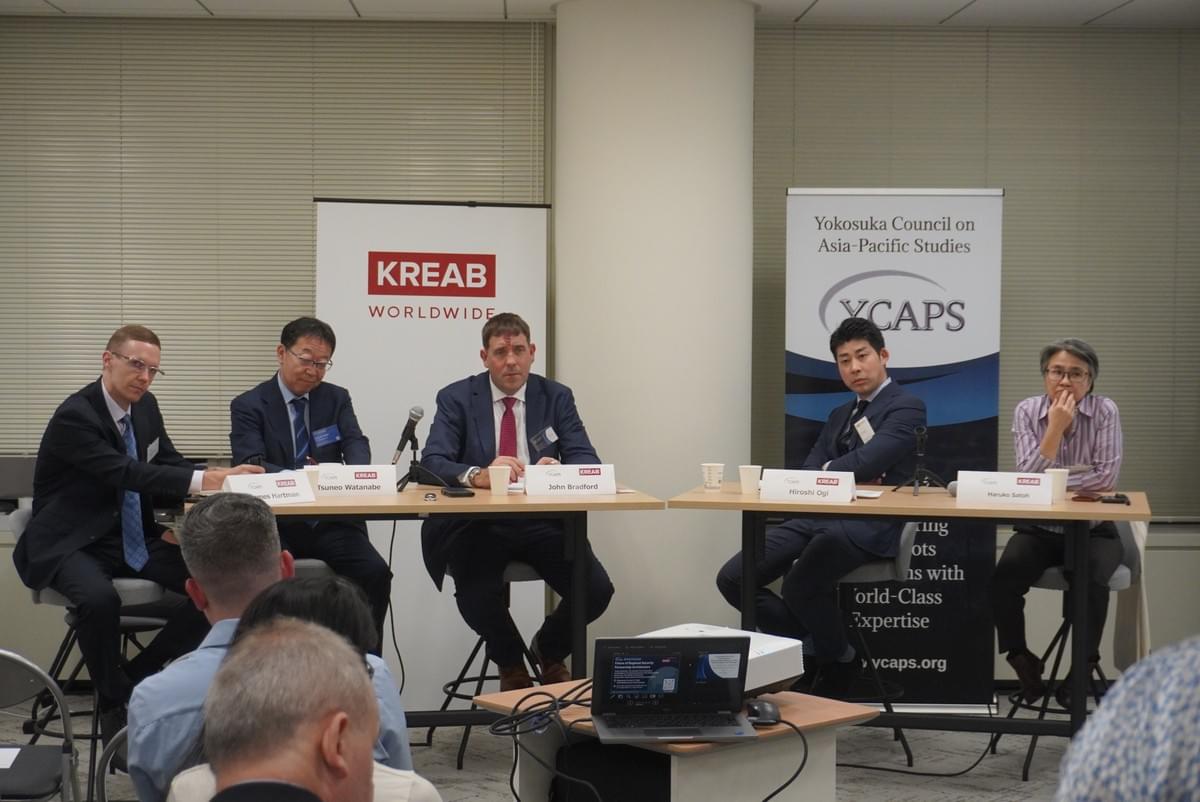
The seminar featured insights from Tsuneo “Nabe” Watanabe of the Sasakawa Peace Foundation, Dr. John Bradford of YCAPS, Hirohito Ogi of the Institute of Geoeconomics, and Professor Haruko Satoh of the Osaka School of International Public Policy. James “Jim” Hartman, YCAPS Senior Research Fellow, served as moderator. The discussion explored the growing complexity of regional security frameworks, the balance between bilateral and multilateral cooperation, and the political, industrial, and strategic factors driving defense collaboration across Asia.
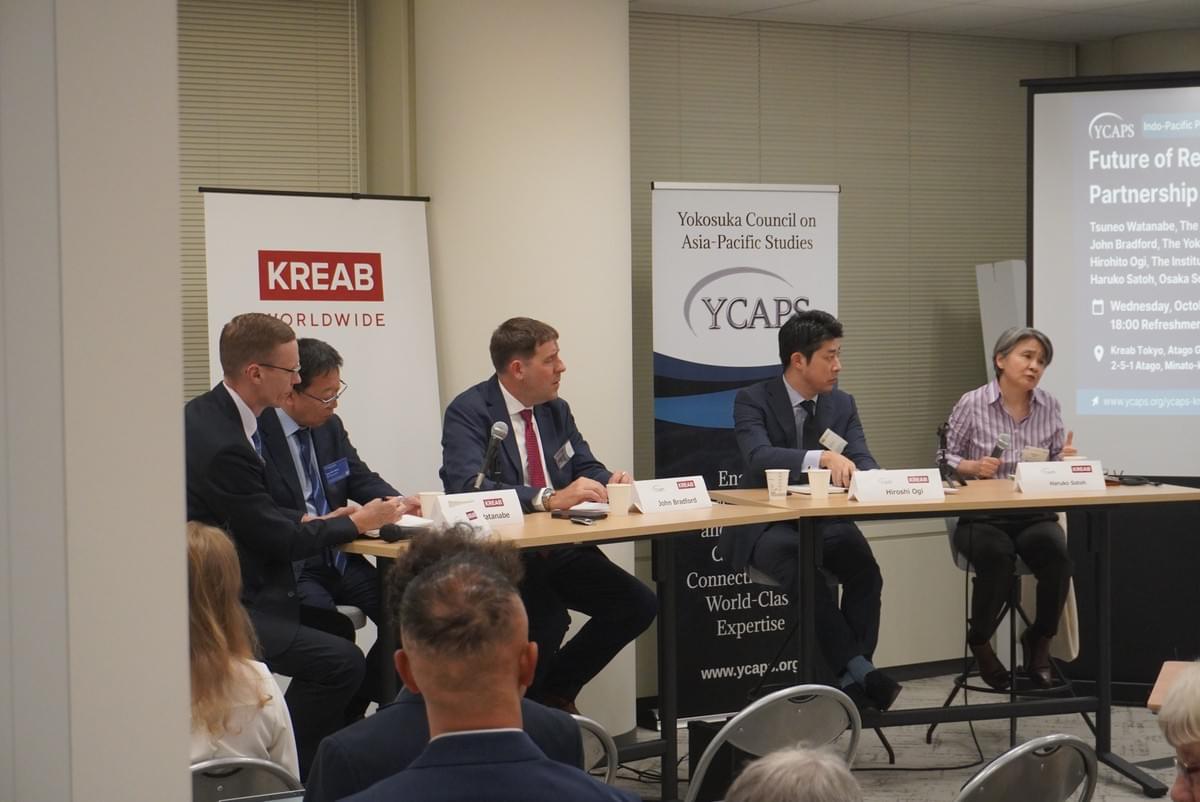
Mr. Watanabe opened with a perspective on U.S. policy under the Trump Administration, describing how an “America First” stance has reshaped alliance dynamics. He noted that while the U.S. remains a vital security partner, it increasingly expects allies to contribute more, prompting countries like Japan to strengthen cooperation with ASEAN and India. He outlined Japan’s “Plan A Plus” strategy, emphasizing extended missile capabilities and deeper engagement with regional partners to enhance deterrence in an era of strategic uncertainty.
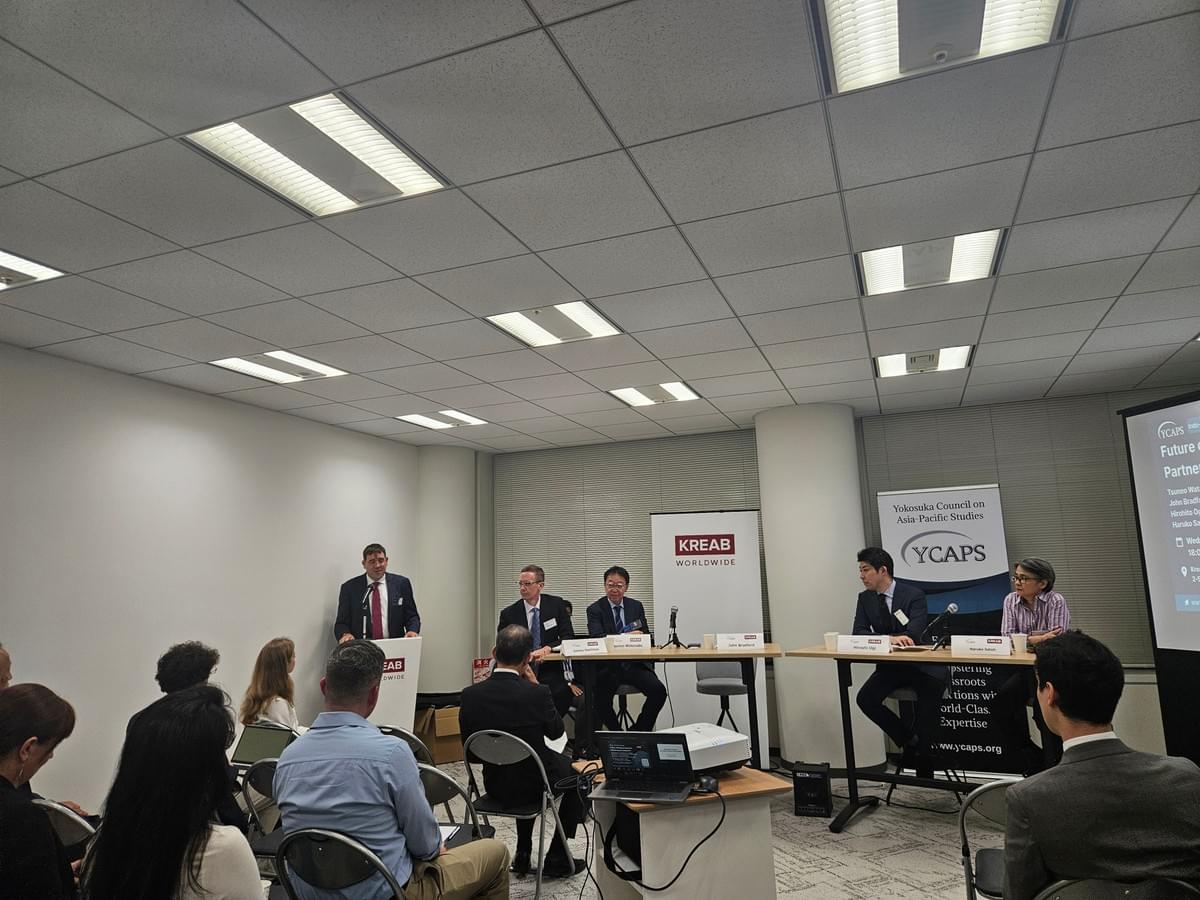
Dr. John Bradford emphasized that the United States, while still central, is no longer indispensable in Indo-Pacific security. He described how the region has evolved beyond a U.S.-centric “hub-and-spokes” system into a flexible web of minilateral partnerships. Japan has emerged as a leader in this transformation, cultivating close relationships with the Philippines, Australia, and the United Kingdom. Bradford argued that these “almost alliances”—operationally capable but politically less formal—represent a pragmatic form of defense cooperation that enhances flexibility and regional stability.
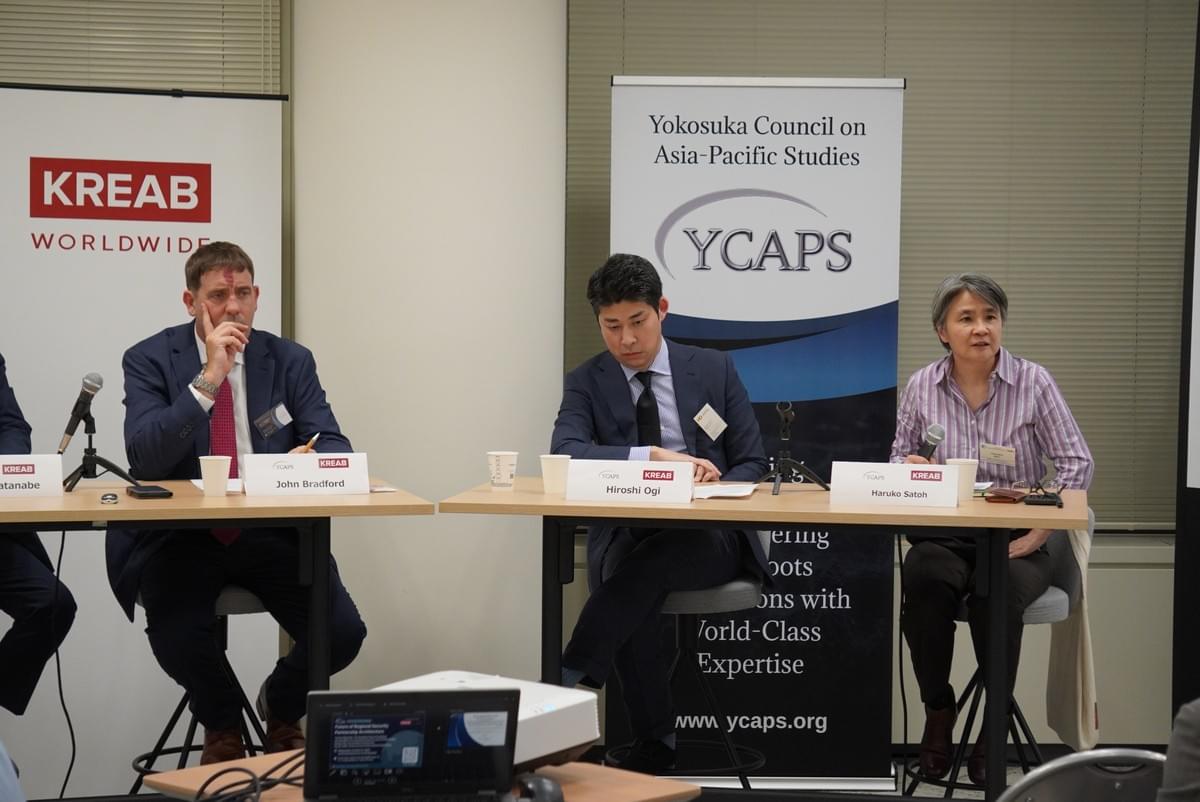
Hirohito Ogi examined the global surge in defense demand brought about by concurrent conflicts in Ukraine and the Middle East. He explained that two main frameworks are emerging: a U.S.-centric model of coproduction and codevelopment, and an indigenous, locally led model of defense capability building. Within the latter, he highlighted Japan’s participation in the Global Combat Air Program (GCAP)—a multinational initiative led by the United Kingdom, Japan, and Italy to develop a sixth-generation stealth fighter intended to replace the Eurofighter Typhoon, the Mitsubishi F-2, and other legacy aircraft. The program, announced jointly by the three governments in December 2022 and formalized with a treaty in 2023, involves around 9,000 people and over 1,000 suppliers worldwide, including 400 in Japan. Ogi noted that while frameworks like GCAP strengthen regional self-reliance, they also underscore the challenge of aligning differing national priorities within the broader Indo-Pacific defense architecture.
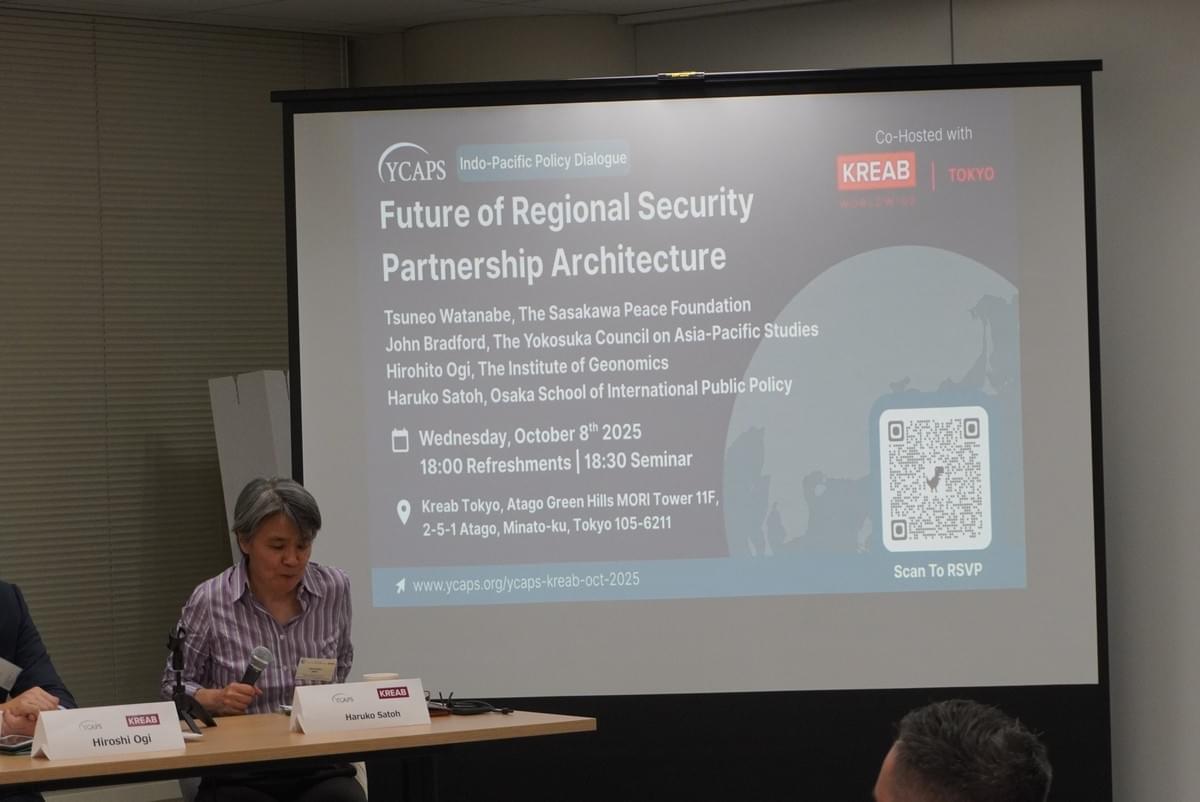
Professor Haruko Satoh placed these developments within the broader historical and political context, emphasizing the essential role of diplomacy. She observed that Japan’s approach to defense has become more pragmatic, but that its security policy continues to evolve in response to global shifts. She argued that the region must revisit the post-1945 institutional order, particularly the UN Security Council, and adapt it to today’s realities. Satoh underscored the need for Japan and South Korea—two key democratic powers in the region—to deepen cooperation, noting that proper regional stability depends on confronting unresolved historical tensions and embracing multilateralism as the foundation of a renewed security framework.
Audience engagement was lively, with questions about India’s strategic positioning, the potential implications of a renewed Trump presidency, and the relationship between indigenous defense production and existing alliances. The panelists provided diverse perspectives on how technology, domestic politics, and strategic culture influence national defense decisions. The conversation also explored the political neutrality of military institutions and the risks posed by their politicization, as well as prospects for minilateralism and Japan’s role as both a diplomatic and technological bridge.
The event concluded with a shared understanding that Indo-Pacific security cooperation is becoming increasingly multidimensional, blending traditional alliances with adaptable minilateral arrangements. Participants agreed that Japan’s leadership in both defense innovation and regional diplomacy will continue to shape the evolution of this emerging architecture.
YCAPS extends its sincere appreciation to Kreab Tokyo for hosting this thoughtful and engaging discussion, and to all who attended and contributed. This first collaboration between YCAPS and Kreab Tokyo marks the beginning of an ongoing series of dialogues on key strategic issues facing the Indo-Pacific region.